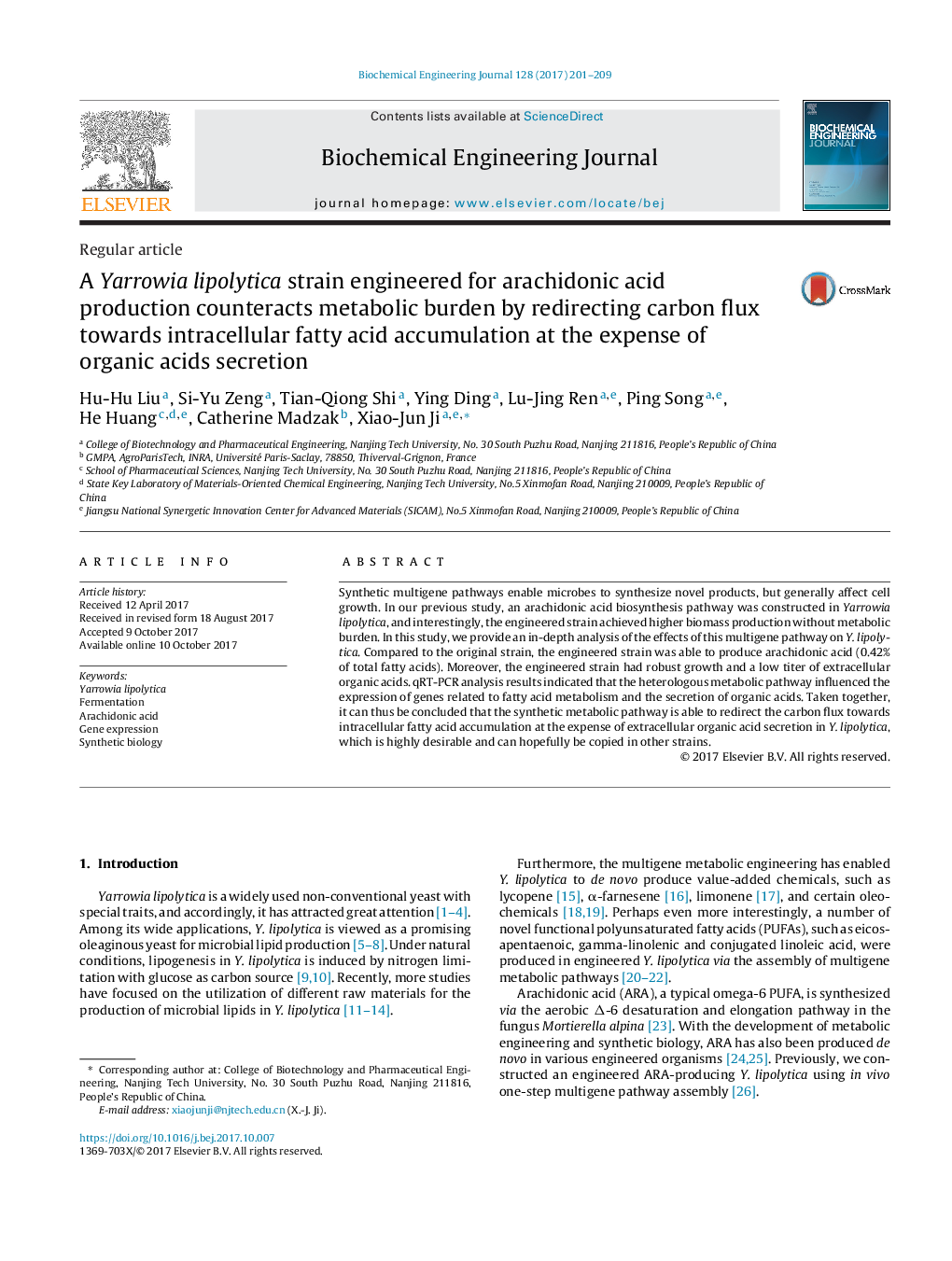| Article ID | Journal | Published Year | Pages | File Type |
|---|---|---|---|---|
| 4752033 | Biochemical Engineering Journal | 2017 | 9 Pages |
Abstract
Synthetic multigene pathways enable microbes to synthesize novel products, but generally affect cell growth. In our previous study, an arachidonic acid biosynthesis pathway was constructed in Yarrowia lipolytica, and interestingly, the engineered strain achieved higher biomass production without metabolic burden. In this study, we provide an in-depth analysis of the effects of this multigene pathway on Y. lipolytica. Compared to the original strain, the engineered strain was able to produce arachidonic acid (0.42% of total fatty acids). Moreover, the engineered strain had robust growth and a low titer of extracellular organic acids. qRT-PCR analysis results indicated that the heterologous metabolic pathway influenced the expression of genes related to fatty acid metabolism and the secretion of organic acids. Taken together, it can thus be concluded that the synthetic metabolic pathway is able to redirect the carbon flux towards intracellular fatty acid accumulation at the expense of extracellular organic acid secretion in Y. lipolytica, which is highly desirable and can hopefully be copied in other strains.
Related Topics
Physical Sciences and Engineering
Chemical Engineering
Bioengineering
Authors
Hu-Hu Liu, Si-Yu Zeng, Tian-Qiong Shi, Ying Ding, Lu-Jing Ren, Ping Song, He Huang, Catherine Madzak, Xiao-Jun Ji,
